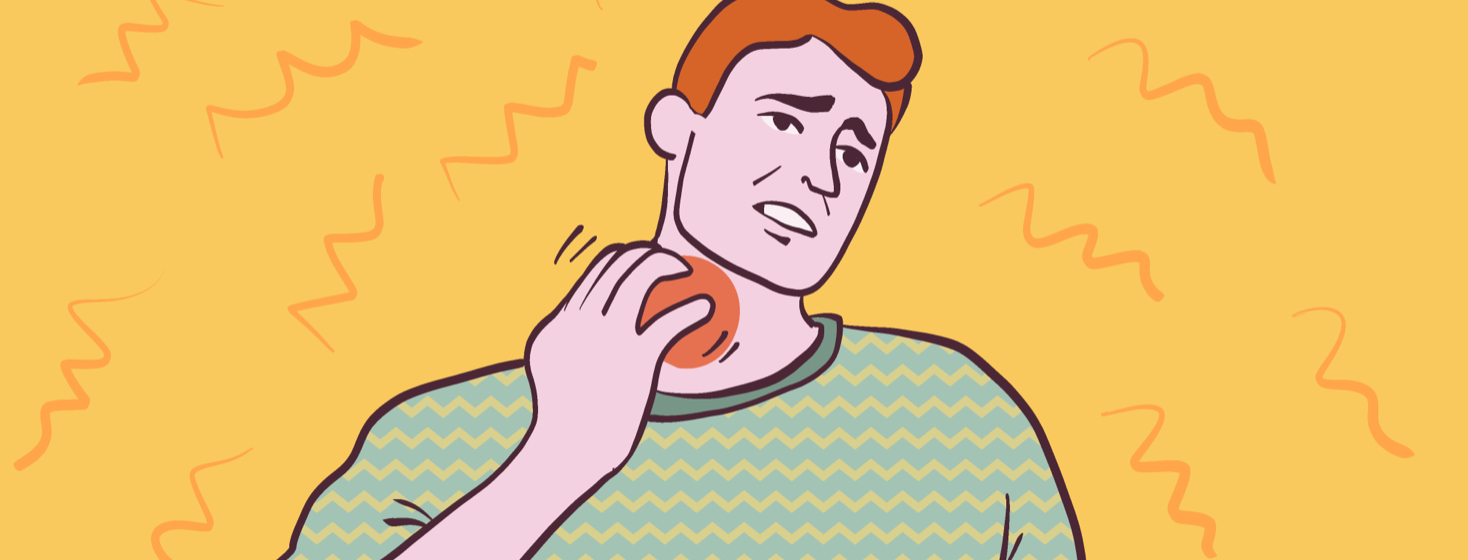My Experience With Asthma Itch
When it comes to the asthma itch, there is one day that stands out in my mind. It was a cool spring day back in 1993. I had just graduated from college. And I had planned on getting up early to begin my search for a job writing for a newspaper. But, first, I had to visit a lady who was making a resume for me.
I had spent the night sleeping in my brother’s basement at his home in Grand Rapids. I was there because I figured I had a better chance of finding a job in the big city compared to my hometown. So, it was early in the morning, and I was wide awake before my alarm went off.
I was up because my neck was itching. And it also kind of burned. So, this made me think that I had been scratching it in my sleep. And this made me aware that I was experiencing the asthma itch.
What is the asthma itch?
By 1993, I had lived with asthma for over 20 years. So I was well aware that an itchy chin was an early warning sign of asthma for me. And, interestingly, I was also aware that I was not the lone asthmatic to experience this.
About 8 years earlier I spent time at the asthma hospital in Denver. I met other people with asthma there who also experienced itchy chin. Over time I started describing it as "the asthma itch."
A few years ago I researched the asthma itch. And I learned that asthma doctors learned long ago about it from their asthma patients. So, this wisdom was relayed to researchers, who performed studies to better understand it. And they even came up with a scientific name for it: "prodromal itching."
I have since written two articles on this. One is called "Itchy Chin and Neck: What's the Deal?" The other is called, "What Causes Asthma Itch?"
Usually, with the asthma itch, I also experience other early warning symptoms of asthma. These include shortness of breath and chest tightness. These symptoms are usually mild. However, if I ignore them and do not treat them, they can become quite severe. They can lead to a full-blown asthma attack.
So, with experience, I have learned not to ignore them. I have learned to treat them with my asthma medicine. And usually, with treatment, my symptoms (including the itch) gradually subside.
And that is what happened on this day.
The asthma itch experience that stands out
I showered and got dressed. I ate breakfast. I did all this before anyone else in the house was up. Soon, I was in the office of a lady who my brother said made a great resume for him. She agreed to do the same for me. And she handed me a stack of resumes. I looked at the one on top and was very impressed. "Oh, this is awesome. Thank you very much," I said.
And she said, "You are welcome." Then she paused for a moment, as though searching for the correct words, and said, “Just so you know, your neck has scratch marks on it. I hope that doesn’t impede your job search."
Being a young kid at the time, I had no idea what to say. I thanked her again and was on my way. In the car, I put down the sun visor and looked into the mirror. And there they were in all their glory: scratch marks.
This made me self-conscious – talk about embarrassing. And it made me not want to do any job hunting that day. So I spent the day driving around Grand Rapids and listening to relaxing music from the 1980s. After driving around for quite a while, I became hungry and decided to return to my brother’s house.
Of course, as soon as I walked into the door, he said, "Hey, John. How did the job hunt go today?"
"Great!" I lied.
"What happened to your neck?" he said.
"Oh, nothing. I think I just scratched it in my sleep."
What did I learn from this?
The first thing I learned was to resist the urge to scratch the asthma itch away. For one thing, the itch is on the inside of the skin. You can scratch it all you want and it will not go away. The only thing that will make it go away is removing yourself from the trigger and treating your asthma.
Thankfully, I rarely deal with the asthma itch anymore. This is thanks to all the great modern asthma medicines on the market today. Also, if something like this did happen today, I would probably be honest and open about it. After all, talking about it and explaining our experiences are how we get the word out about asthma.
Have you had an experience with asthma itch? Share your story with the community by clicking the button below.

Join the conversation